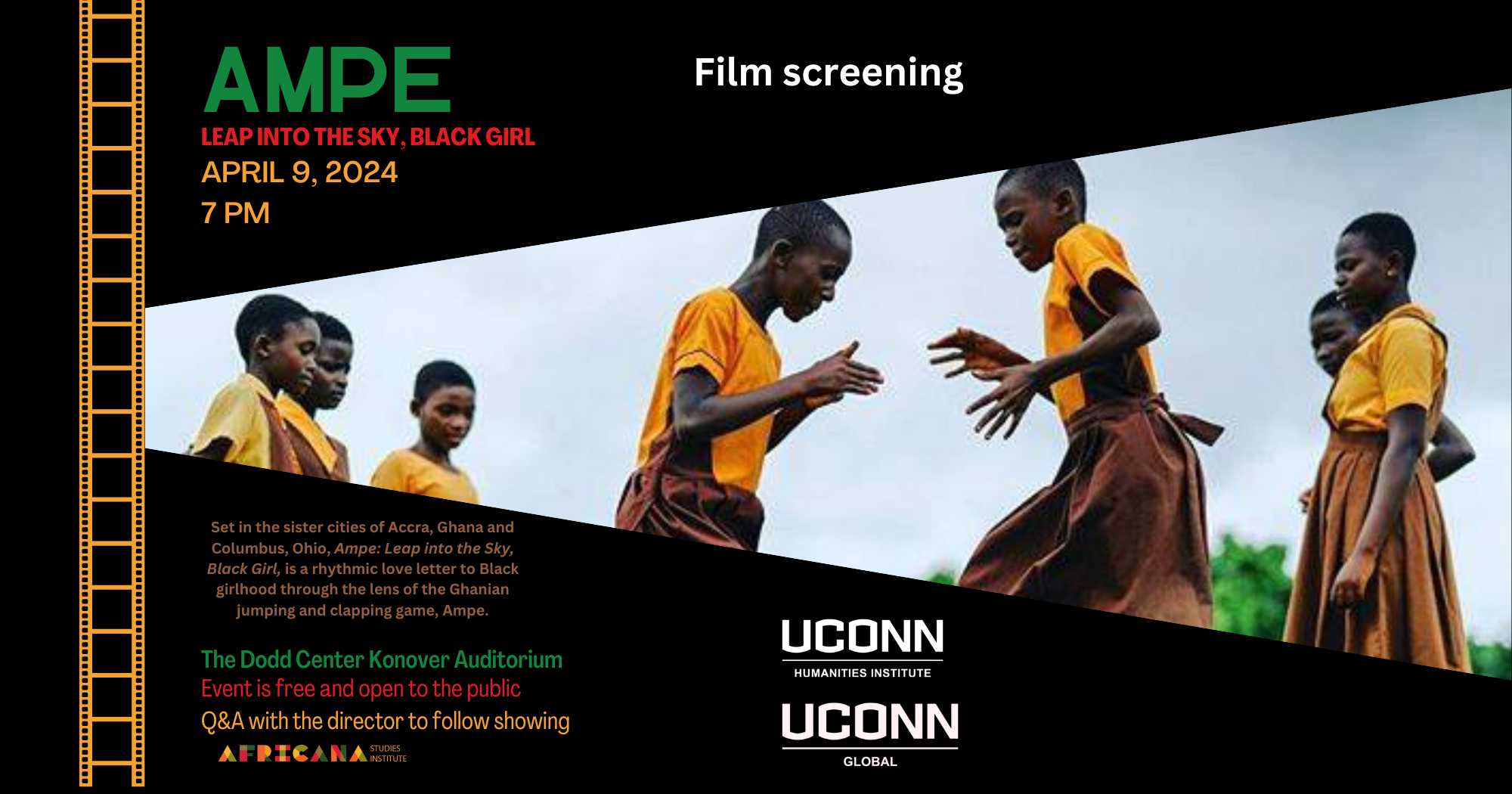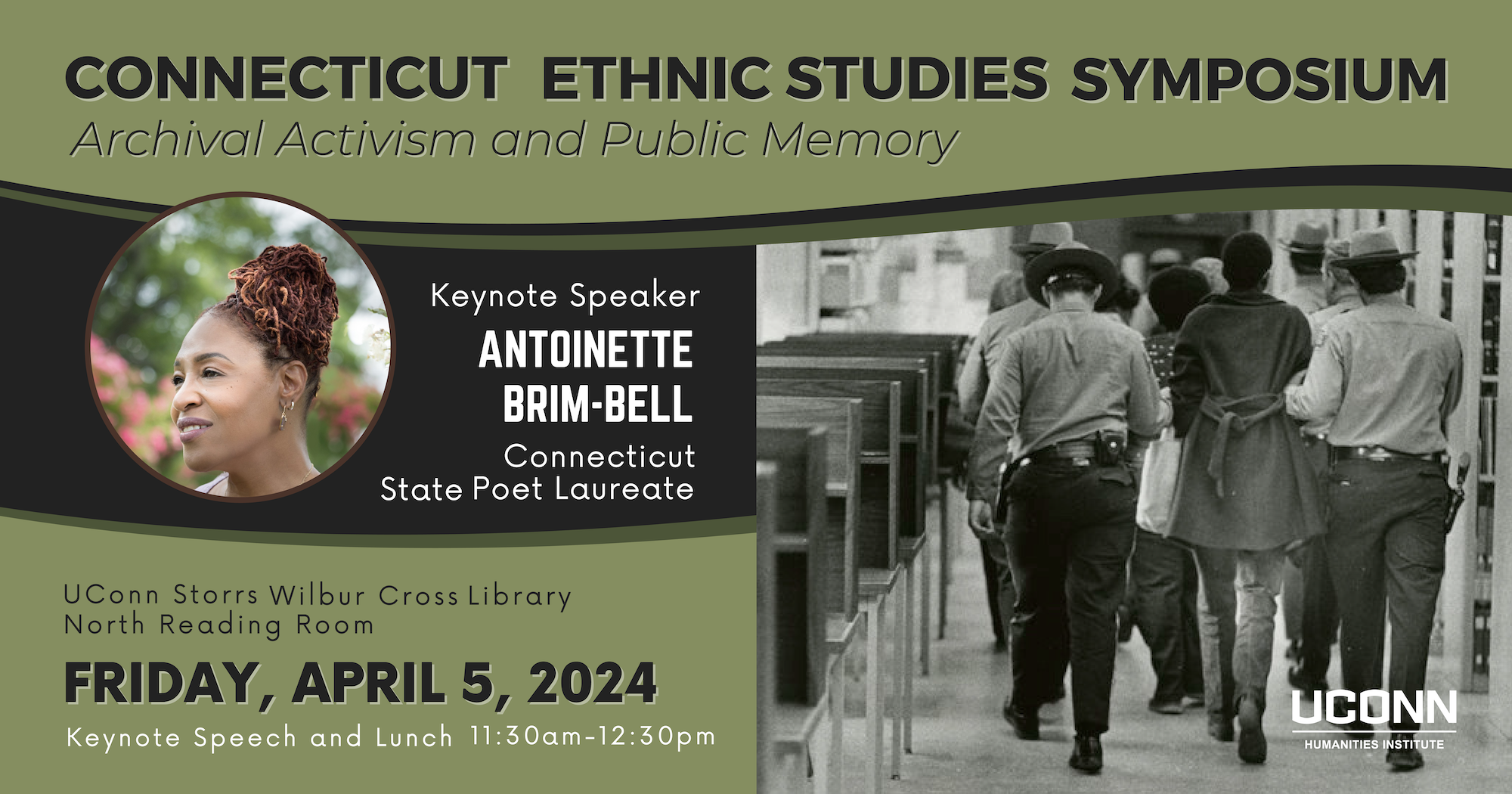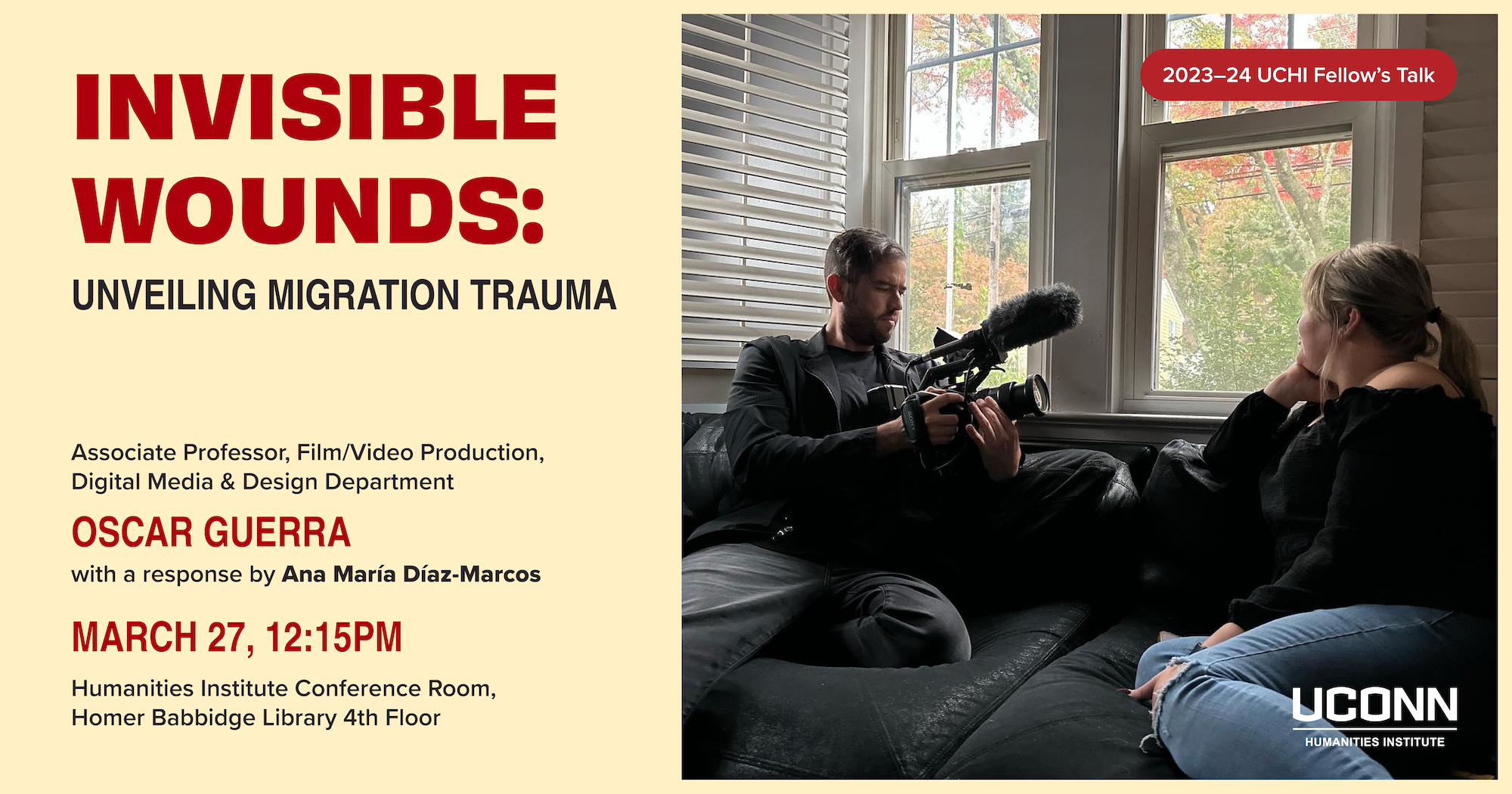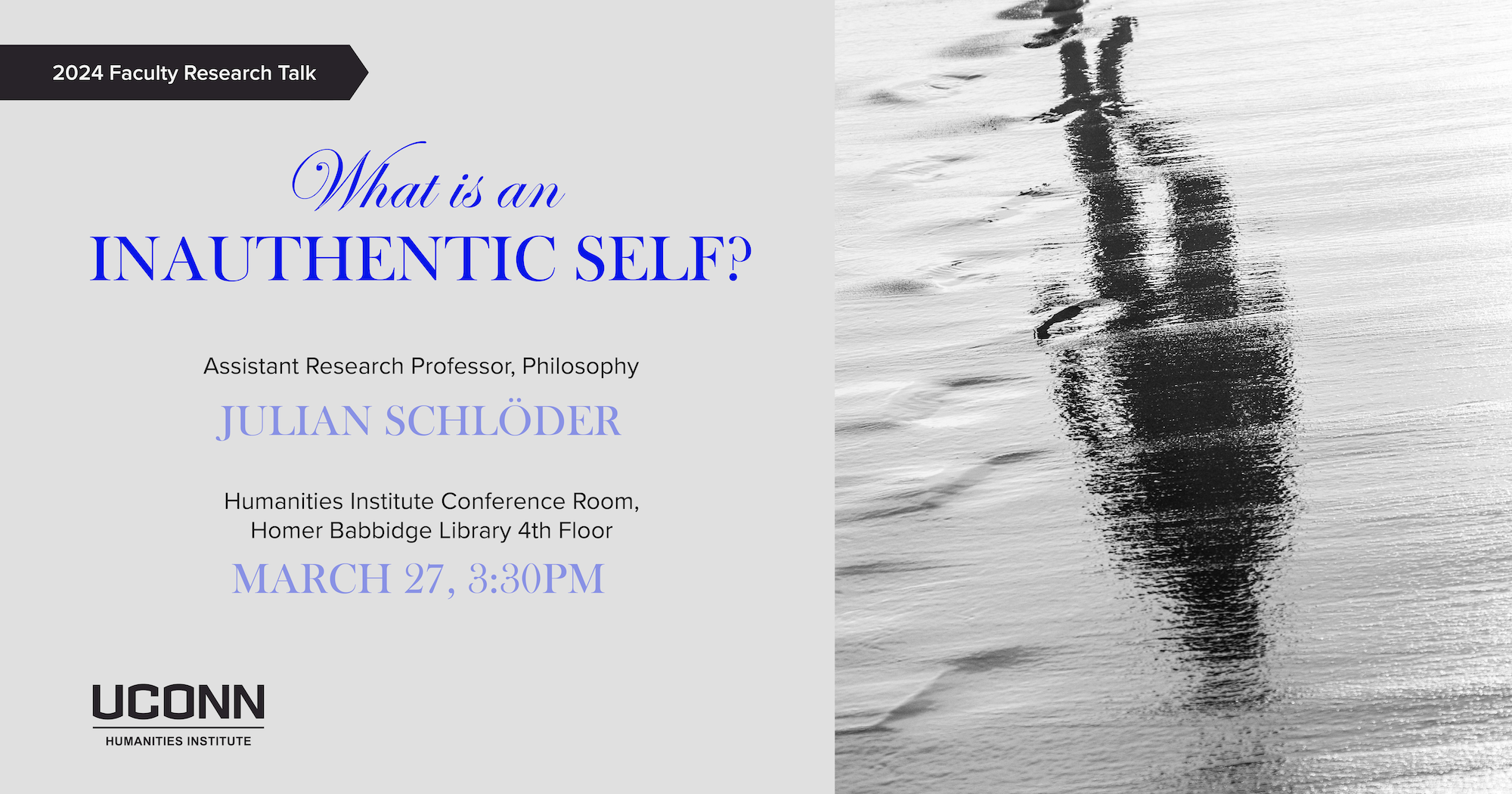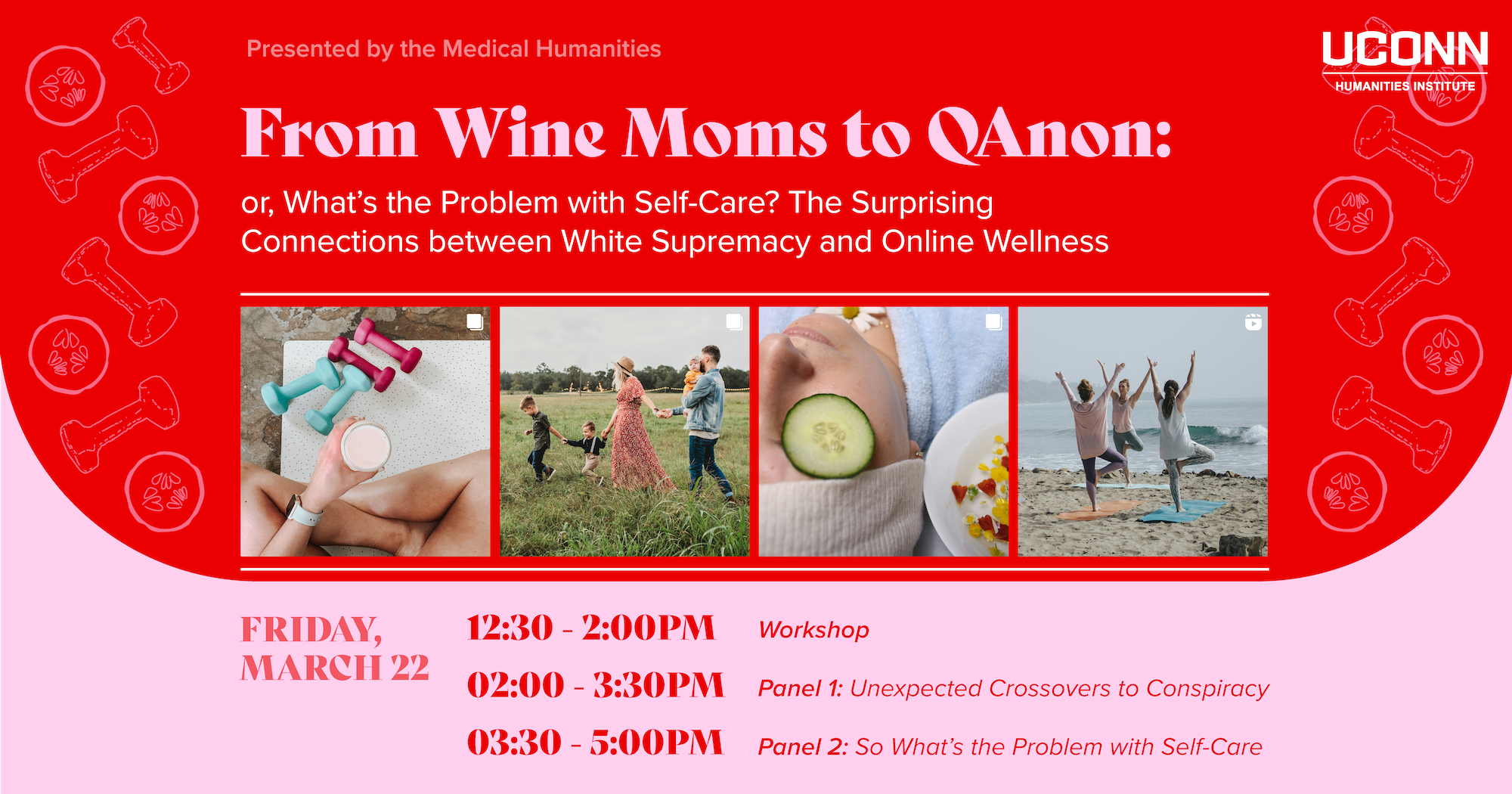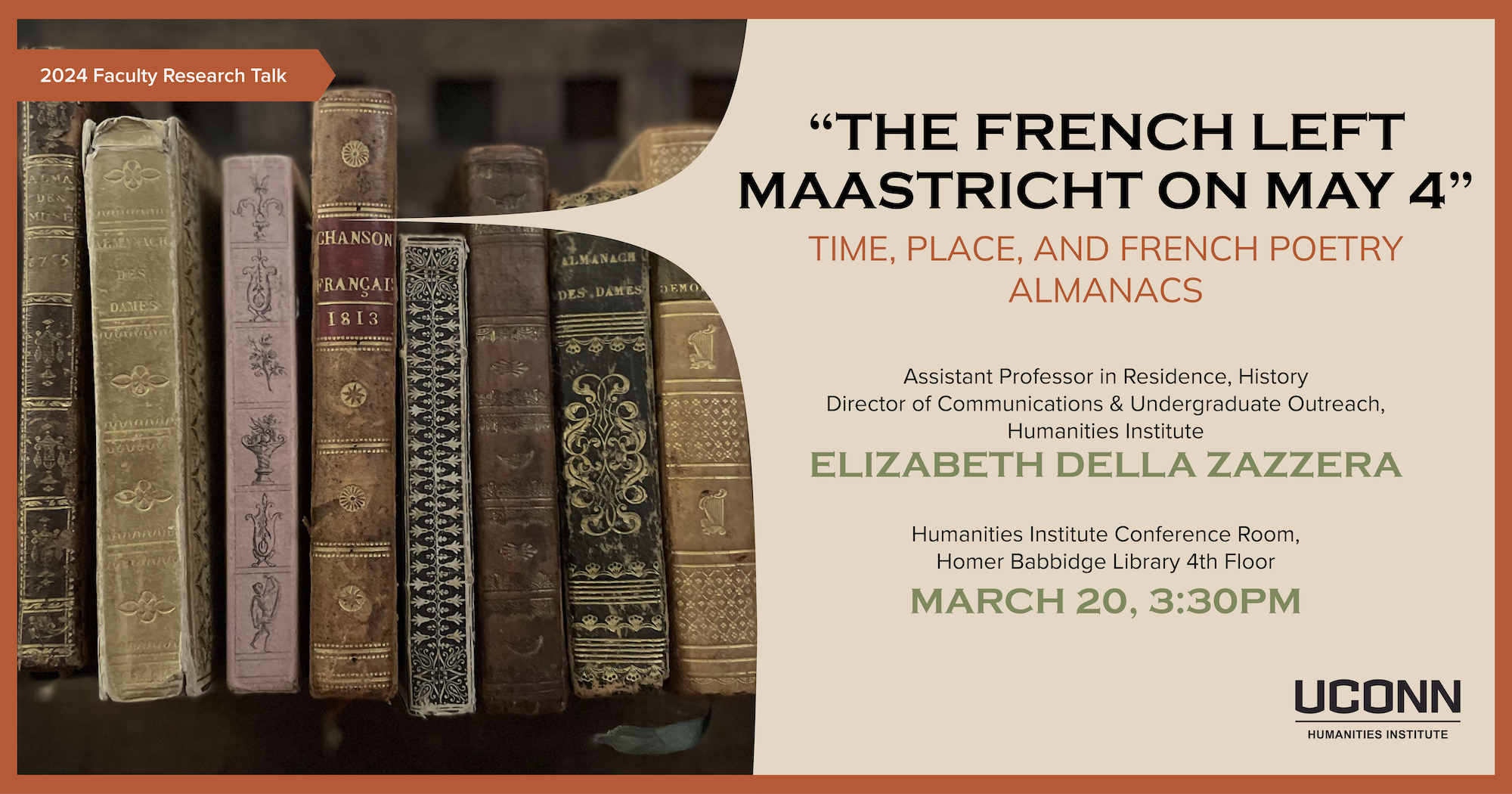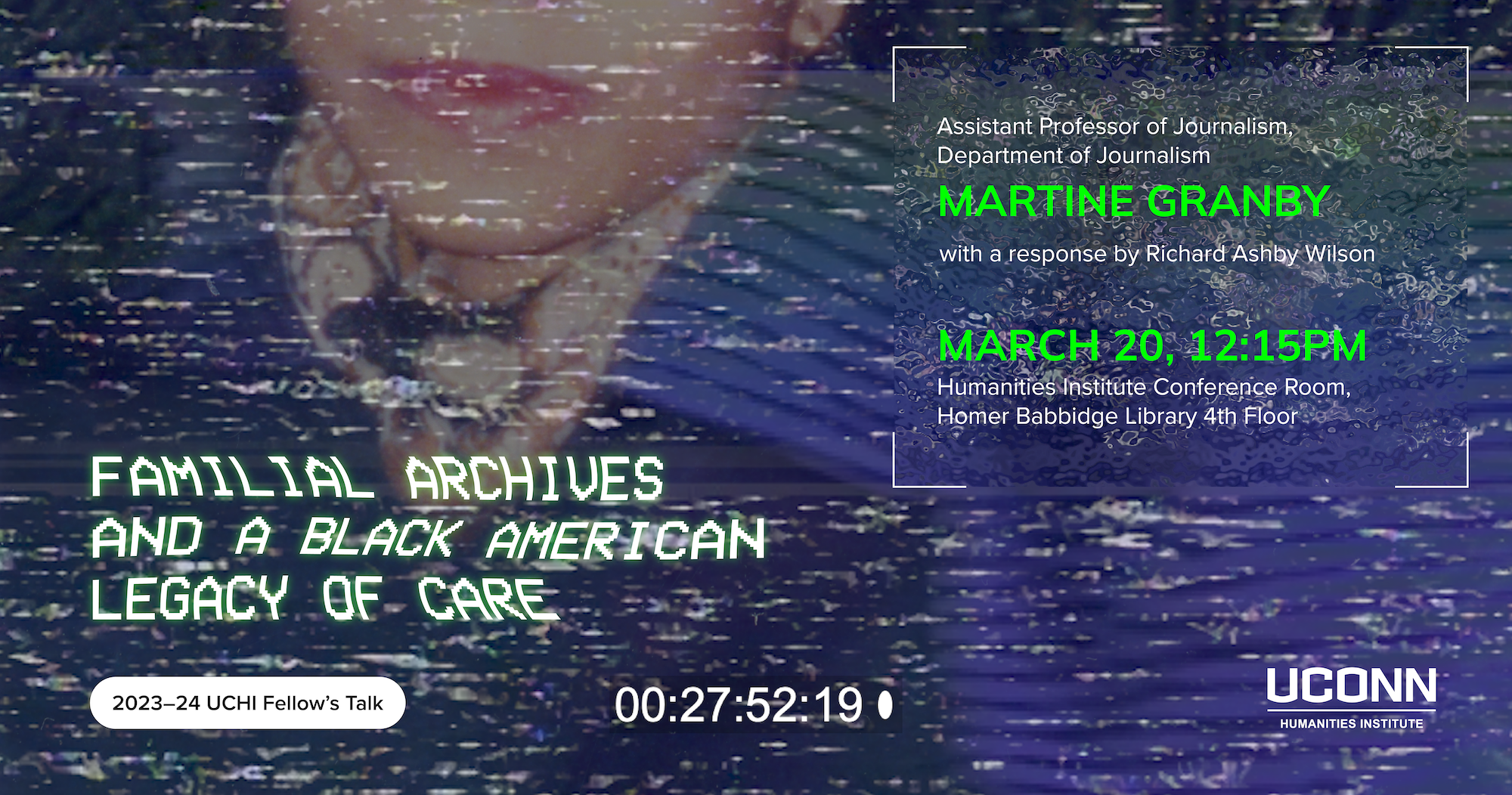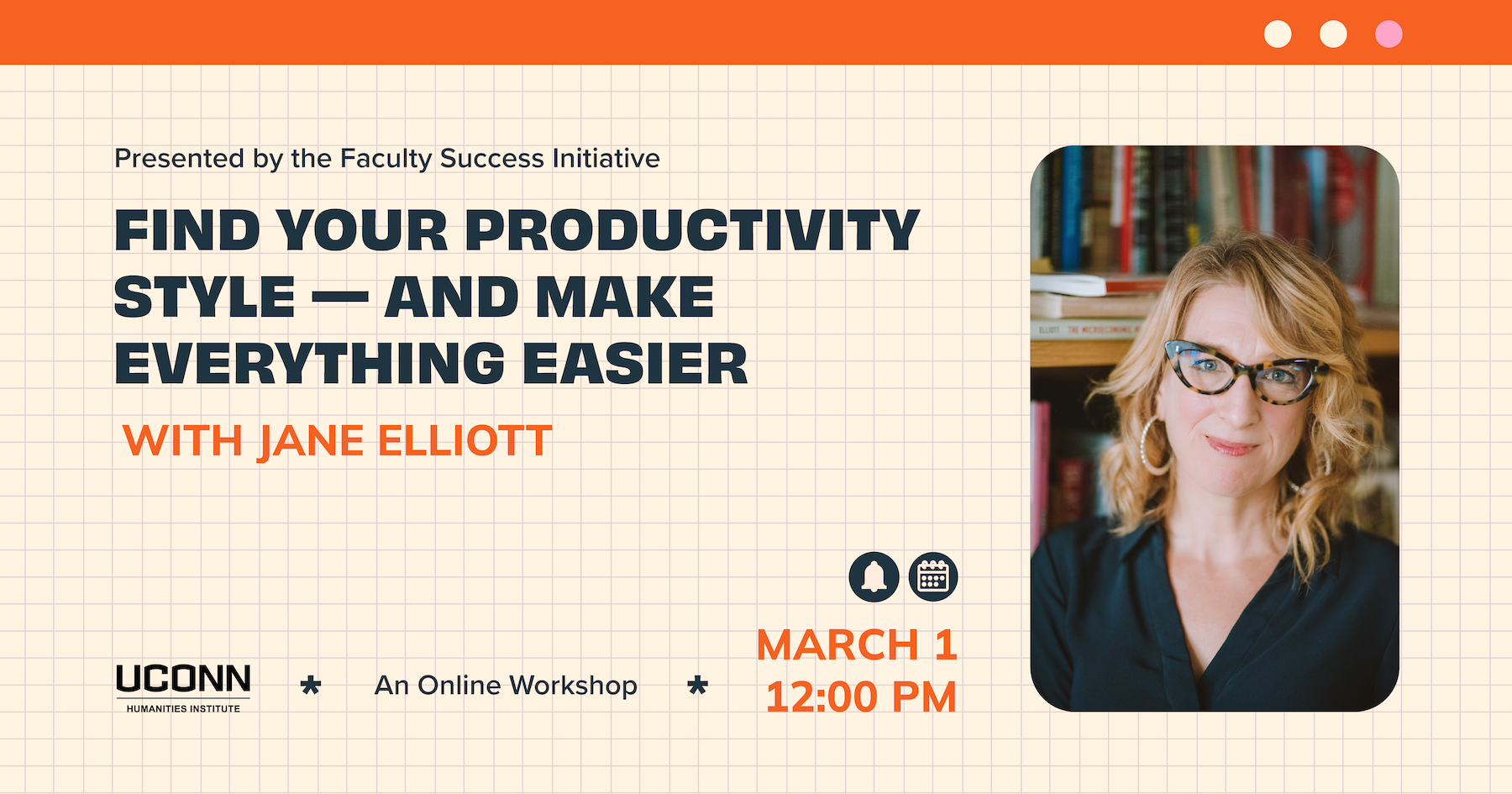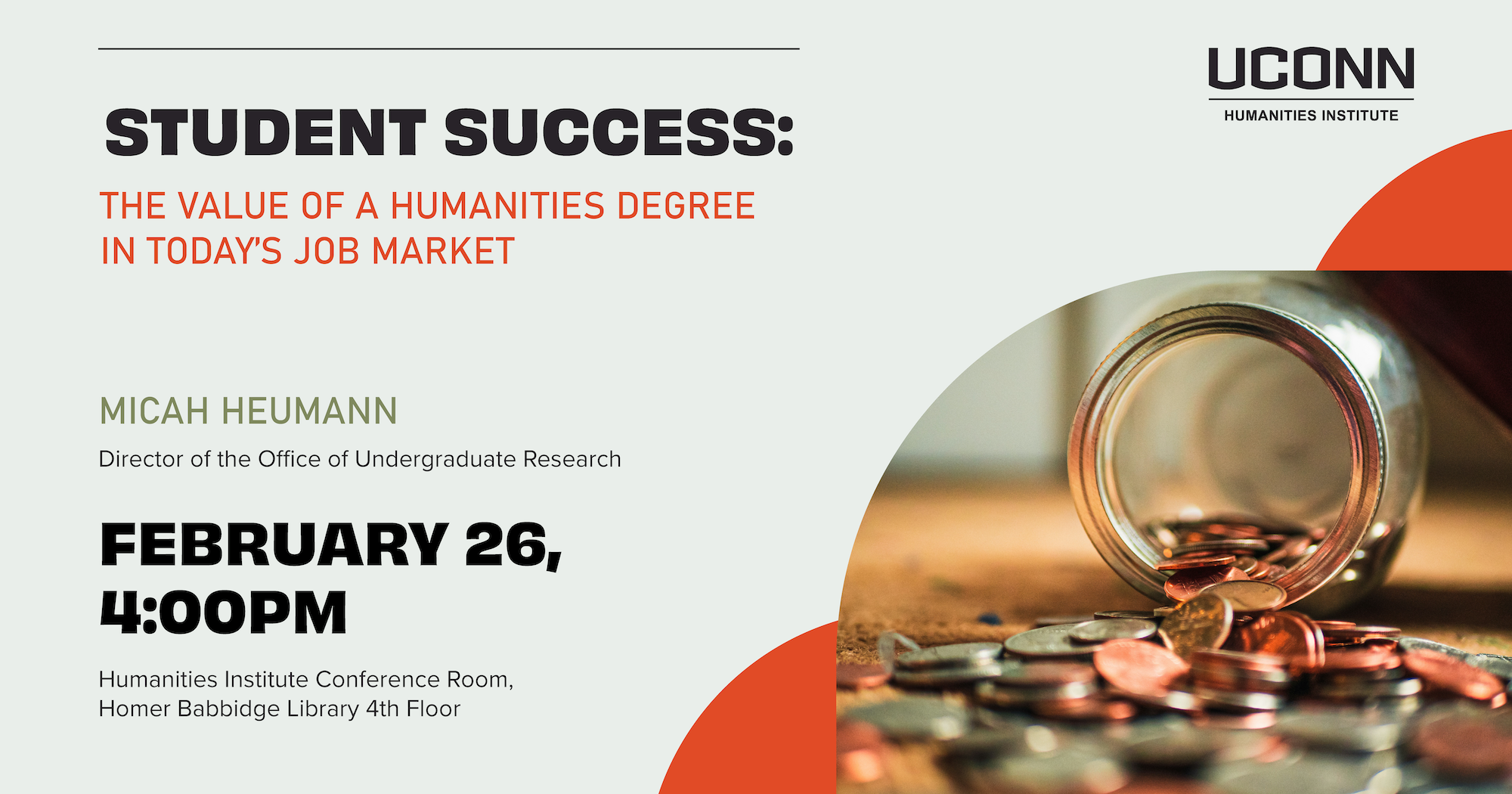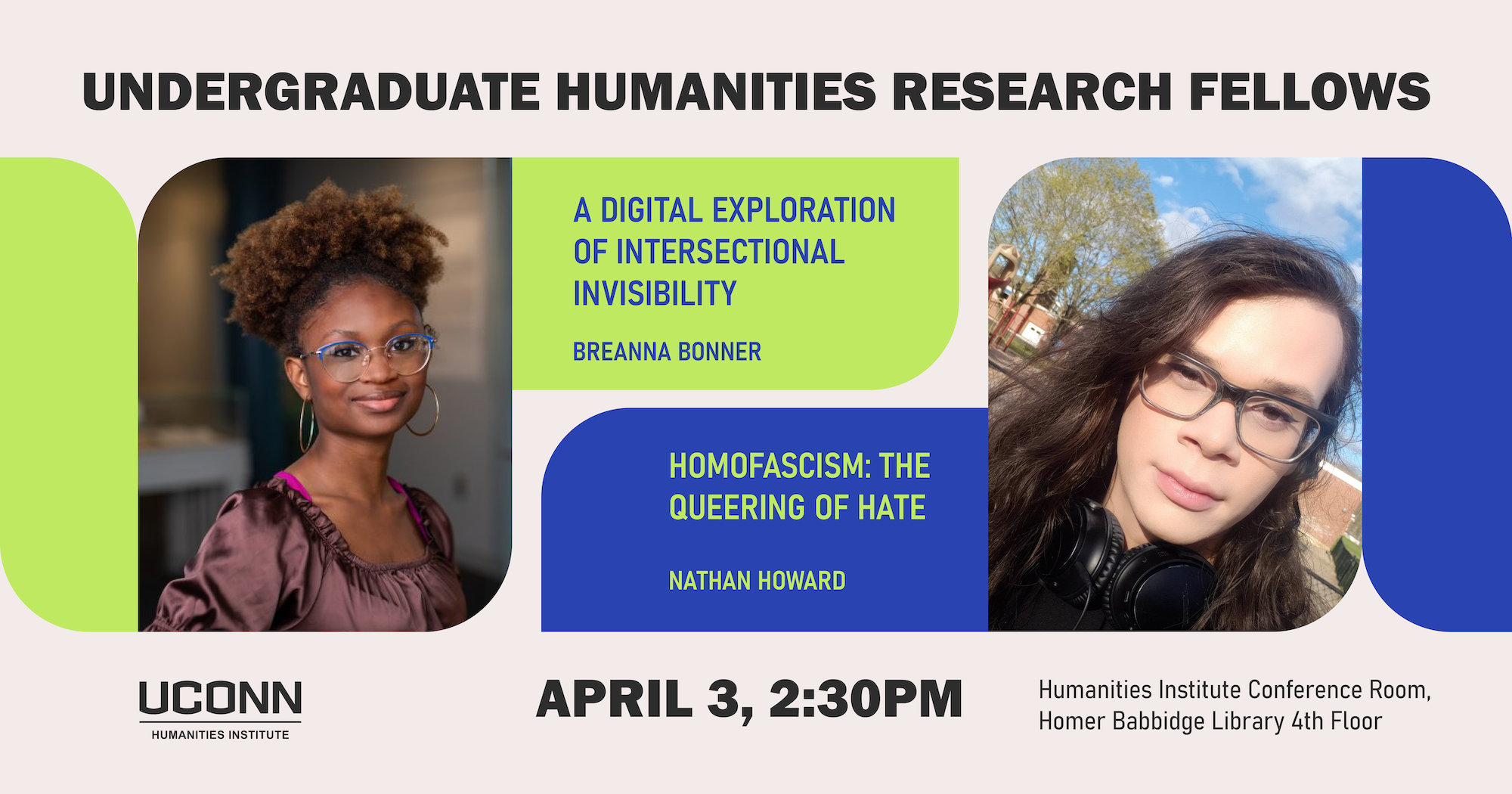
Undergraduate Humanities Research Fellows
Breanna Bonner, “The Space Between Black and Liberation: A Digital Exploration of Intersectional Invisibility”
and Nathan Howard, “Homofascism: The Queering of Hate”
Wednesday April 3, 2024, 2:30pm, Humanities Institute Conference Room (HBL 4-209)
The event will also be livestreamed with automated captioning.
Register to attend virtually
Undergraduate Humanities Research Fellows Breanna Bonner and Nathan Howard will present on their fellowship projects.
“The Space Between Black and Liberation: A Digital Exploration of Intersectional Invisibility,” Breanna Bonner
“The Space Between Black and Liberation,” aims to conceptualize Black Women’s experiences of Intersectional Invisibility in Social Movements. While Black Women hold two or more marginalized identities and are hyper-visible in the violence that necessitates the creation of social movements (e.g sexual assault, police violence, racial or gender-based discrimination), they are often invisible within the goals and outcomes of social movement advocacy. This research project aims to understand and combat intersectional invisibility through the creation of an educational, interactive website. Considering the guiding question: “how do we physically make invisibility visible,validated, and move towards solutions? ”The website explores historical contexts and interventions in Intersectional Invisibility, amplifies ethnographic research of Black Women students on campus, and creates a crucial guiding framework for future journalists, social movement advocates, and policy-makers.
“Homofascism: The Queering of Hate,” Nathan Howard
Violent homophobia is a core component of white supremacist fascist ideologies, such as white separatist movements and neo-Nazism. How, then, do we make sense of the historical and contemporaneous incidence of gay fascist activism? How do gay fascists make sense of, or even reconcile, their gay identity with the heterosexist expectations endemic to fascist projects? Why would they endorse the abuse of persons like them, or agitate for projects that seek to oppress them? “Homofascism: The Queering of Hate,” is an attempt to answer such questions, highlighting the primacy of gender in fascist and homofascist discourse.
Breanna Bonner, sophomore at the University of Connecticut (UCONN) double-majoring in Human Rights and Political Science. Breanna is a former Student Strategist for Kansas City Defender, a mentor for the Human Rights Close to Home Program, Research Specialist for UConn’s First Year Programing office exploring institutional barriers for students accessing Higher Education , and an Undergraduate Research Fellow for the UConn Humanities Institute. In her free time she enjoys hiking, ice-skating, embroidery, hanging out with friends, and using Twitter.
Nathan Howard is a senior at UConn, majoring in Philosophy with a minor in Music. Nathan is an assistant editorial board member at the undergraduate philosophy journal Stance and an Undergraduate Fellow at the UConn Humanities Institute. His research interests include fascism and extremism, nihilism, feminist and queer theory, and social and political philosophy. In his spare time, he enjoys reading, making music, doomscrolling on social media, and watching bad movies.
Access note
If you require accommodation to attend this event, please contact us at uchi@uconn.edu or by phone (860) 486-9057. We can request ASL interpretation, computer-assisted real time transcription, and other accommodations offered by the Center for Students with Disabilities.
